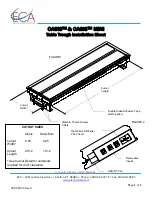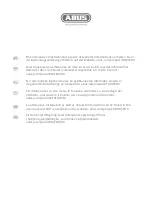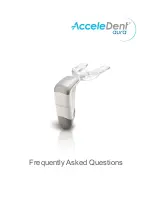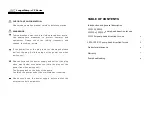
w w w . h a w k e y e e l e c t r o n i c s . c o m
STEP 4
Testing the Display Installation
Before continuing with your installation, you should test the
unit to make sure the system wires are properly attached.
1.
Apply power to the unit by turning on the power
source
that you’ve attached the red and black wires to.
2. Press and release the button on the display.
3. The alarm should beep 3 times while the display
illuminates all the LCD graphics for 2 seconds.
4. “---” will then be shown on the LCD.
If the display operates as per above, continue to the
“Getting to Know Your Micro Depth Sounder” section.
If the display does not turn ON:
1.
Check the power source using a test light or DC
volt meter. Make sure there is 12 volt power
where the power harness connects to both the
positive and negative sources.
2. Check the fuse holder assembly with a test light or DC
volt meter. Connect the ground to the test meter or light
to the vessel’s negative power source.
A.
Remove the fuse and check for 12 volt power at
the
spring located inside the fuse housing that is
connected to the vessel’s power source.
If 12 volt
power is present continue to Step 2-B. If power is not
present, return to Step 1.
B.
Insert the fuse and check for 12 volt power at the end
of the fuse.
If 12 volt power is present continue to Step
2-C. If power is not present, replace the fuse
C.
Reassemble the fuse housing. Strip back a quarter of
an inch of wire cover on the display side of the fuse
housing and test for 12 volt power.
If 12 volt power is
present continue to #3 below. If power is not present,
replace the fuse housing assembly.
IMPORTANT:
The fuse used in the Micro Depth Sounder is a .25A, 250V fuse. Do
not rely on a visual inspection of the fuse to determine if it is
functioning. If your depth sounder will not turn on, ALWAYS test the
fuse with a test light or voltage meter.








































